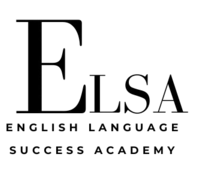Reported speech weaves together accuracy, nuance, and sophisticated expression. For non-native speakers, especially those preparing for exams like IELTS or TOEFL, mastering reported speech can significantly enhance their ability to convey information precisely and elevate their overall language proficiency. This article will guide you through the nuances of reported speech, equipping you with the tools to transform direct utterances into elegantly reported information.
Converting Direct Speech to Reported Speech: The Fundamental Rules
The essence of reported speech lies in relaying what someone else has said without quoting them directly. This transformation involves several key changes:
- Changing pronouns Direct: “I am going to the store,” said John. Reported: John said that he was going to the store.
- Adjusting time and place expressions Direct: “I’ll see you tomorrow,” she said. Reported: She said that she would see me the next day.
- Backshifting tenses (more on this in the next section)
- Removing quotation marks
The Art of Backshifting: Navigating Tense Changes
One of the most challenging aspects of reported speech is the proper backshifting of tenses. Here’s a quick guide:
- Present Simple → Past Simple Direct: “I work here,” she said. Reported: She said that she worked there.
- Present Continuous → Past Continuous Direct: “I am studying,” he said. Reported: He said that he was studying.
- Present Perfect → Past Perfect Direct: “I have finished the report,” Tom said. Reported: Tom said that he had finished the report.
- Past Simple → Past Perfect Direct: “I went to Paris,” she said. Reported: She said that she had gone to Paris.
- Will → Would Direct: “I will help you,” he promised. Reported: He promised that he would help me.
Note: If the reported speech is still true or relevant at the time of reporting, the tense might not change: Direct: “The Earth revolves around the Sun,” the teacher explained. Reported: The teacher explained that the Earth revolves around the Sun.
Reporting Questions, Commands, and Requests
Reporting different types of sentences requires specific structures:
- Reporting Questions
- Yes/No questions use ‘if’ or ‘whether’ Direct: “Do you like coffee?” she asked. Reported: She asked if/whether I liked coffee.
- Wh-questions keep the question word Direct: “Where do you live?” he inquired. Reported: He inquired where I lived.
- Reporting Commands Use ‘to’ + infinitive Direct: “Stop talking!” the teacher said. Reported: The teacher told us to stop talking.
- Reporting Requests Use ‘to’ + infinitive, often with ‘asked’ Direct: “Could you please help me?” she said. Reported: She asked me to help her.
Common Reporting Verbs and Their Usage
Expanding your repertoire of reporting verbs can add precision and variety to your reported speech:
- Say (general use): He said that he was tired.
- Tell (when specifying the listener): She told me that she was leaving.
- Ask (for questions and requests): They asked when the meeting would start.
- Explain: The professor explained that the theory was complex.
- Suggest: My friend suggested that we try the new restaurant.
- Complain: The customer complained that the service was slow.
- Promise: He promised that he would return soon.
- Advise: The doctor advised that I should rest for a few days.
Practical Exercises: Honing Your Reported Speech Skills
- Convert the following direct speech to reported speech: “I can’t find my keys,” Tom said. Reported: Tom said that he couldn’t find his keys.
- Report this question: “Where have you been all day?” my mother asked. Reported: My mother asked where I had been all day.
- Transform this command into reported speech: “Don’t forget to lock the door,” she reminded me. Reported: She reminded me not to forget to lock the door.
- Practice with mixed types: “I’m tired, but I’ll help you if you need me,” he said. Reported: He said that he was tired, but he would help me if I needed him.
Tips for Using Reported Speech in IELTS/TOEFL Tasks
- In writing tasks, use reported speech to paraphrase information from graphs or data: “The graph shows that sales increased by 20% in 2020.” Reported: The graph indicates that sales increased by 20% in 2020.
- In speaking tasks, report opinions or facts you’ve heard: “My teacher once told us that practice is the key to mastering a language.”
- Use a variety of reporting verbs to showcase your vocabulary: “The article suggests that climate change is accelerating.”
- Practice reporting speech from listening sections to improve your note-taking and summarizing skills.
- In integrated tasks, use reported speech to combine information from different sources: “While the reading passage argues that urbanization leads to environmental problems, the lecturer contends that it can actually be beneficial for the environment.”
The Impact of Mastering Reported Speech
Proficiency in reported speech extends far beyond exam success:
- Enhanced Accuracy: It allows you to convey information precisely, maintaining the original meaning while adapting the language.
- Improved Listening Skills: Focusing on reported speech sharpens your ability to capture and relay key information.
- Sophisticated Expression: Using varied reporting verbs and structures elevates your language, making it more nuanced and mature.
- Better Summarizing Ability: Reported speech is crucial for concisely summarizing discussions, lectures, or written material.
- Professional Communication: In business contexts, accurately reporting conversations, decisions, and agreements is vital.
- Academic Writing: Reported speech is essential for literature reviews, citing sources, and discussing various viewpoints in academic papers.
By mastering reported speech, you’re not just learning a grammar point; you’re acquiring a powerful tool for sophisticated communication. This skill can elevate your language use from basic to advanced, often translating into higher scores across various sections of English proficiency exams and enhancing your overall ability to communicate effectively in English.
Elsa Says:
Reported speech is like being a skilled translator of time and perspective in the English language. It’s not just about changing a few words; it’s about accurately conveying the essence of what was said while adapting it to a new context. By mastering the art of backshifting tenses, navigating pronoun changes, and employing a rich variety of reporting verbs, you’re equipping yourself with a superpower in English communication. Remember, practice is key – try to incorporate reported speech in your daily English use, whether you’re writing, speaking, or even just thinking in English. As you become more comfortable with it, you’ll find your ability to summarize, paraphrase, and convey complex ideas improving dramatically. This skill is invaluable not just for acing exams like IELTS or TOEFL, but for real-world communication in academic, professional, and personal contexts. So embrace the challenge of reported speech, and watch as it transforms your English from good to great, allowing you to convey information with the precision and sophistication of a native speaker!



